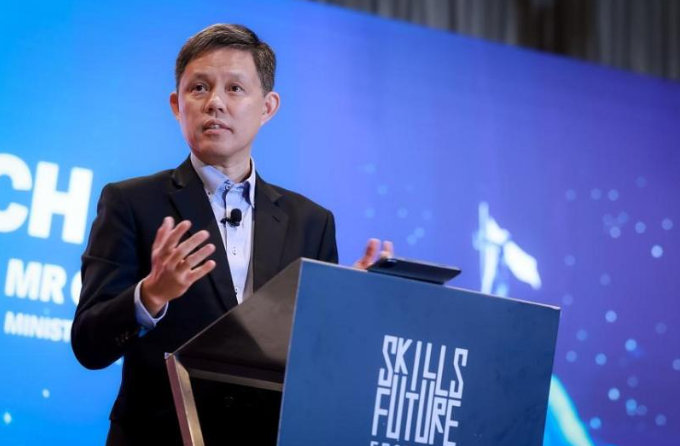Education Minister stresses the importance of skill-based recruitment and continuous learning
Skills-based hiring should become the top priority in recruitment, according to Education Minister Chan Chun Sing. While formal qualifications such as degrees and diplomas remain significant, they should be complemented by continuous “just-in-time” learning modules that address specific skill gaps within companies.
Chan emphasized that companies must focus on skills and competencies rather than relying solely on traditional qualifications when hiring. This shift is crucial for ensuring that the hiring process aligns with the evolving needs of the workforce.
During a speech at the SkillsFuture Forum, he underscored that Singapore’s education system must do more than prepare thousands of students for the workforce each year. A crucial aspect is the reskilling and upskilling of the existing 2.5 million-strong workforce, with many adults requiring training every few years. Chan shared that international experts have pointed out that Singapore may be underestimating the scale of training required, highlighting successful systems in countries like Switzerland, Sweden, and the Netherlands, where more than 60% of adults engage in continuous learning annually.
The Minister outlined four major challenges that Singapore faces in upskilling its workforce at scale. The first is motivating working adults to prioritise skill enhancement amidst daily life pressures. Chan explained that many workers discount the value of training due to immediate financial concerns, making it essential to engage them effectively.
Another challenge lies in helping companies identify emerging skill demands driven by technological disruptions. Small and medium-sized enterprises (SMEs) are especially affected, as they may lack the resources to address these changes. Chan called on trade associations, chambers, unions, and SkillsFuture Singapore (SSG) to support businesses in identifying skills needs.
A third hurdle is the difficulty of aggregating sector-specific skill requirements. This is particularly challenging in fragmented industries. Trade associations must play a key role in gathering and sharing these insights, helping SMEs align with current skill demands.
Lastly, there must be a stronger focus on improving the delivery of adult education. Chan noted that although training programs are of high quality, there is a need for further innovation in teaching methods to better engage adult learners. To address this, the Institute of Adult Learning (IAL) is partnering with polytechnics and NTUC Learning Hub to enhance training practices and develop new models for adult education.
Chan also mentioned changes in SSG funding frameworks, including the removal of subsidies for non-certifiable courses from January 2024. This move aims to ensure that funding is directed towards industry-recognised qualifications that contribute directly to career advancement.
Singapore currently invests approximately S$700 million annually in SkillsFuture subsidies. Chan concluded by stressing that the speed of evolution in skills and business capabilities will determine success in the future. He called for collective effort in refining training systems to ensure that Singapore remains at the forefront of workforce development.








